The Highs and Lows of Killing Eve’s Third Season
-
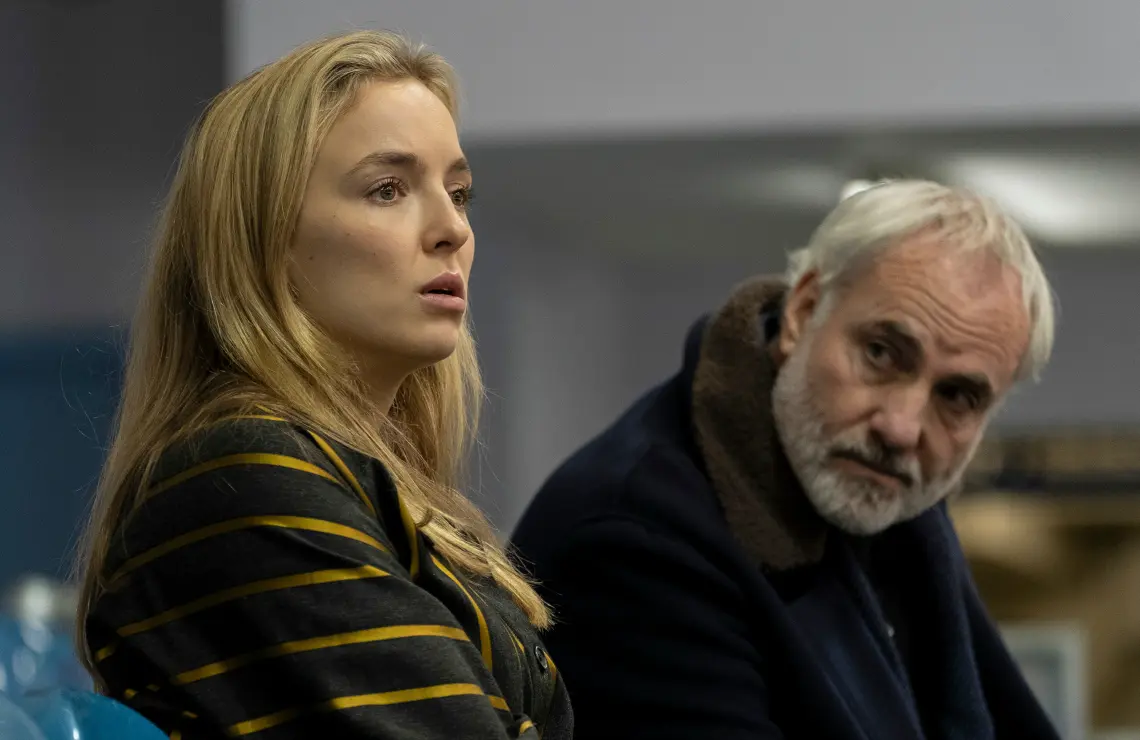 Jodie Comer and Kim Bodnia in Killing Eve. (BBC America)
Jodie Comer and Kim Bodnia in Killing Eve. (BBC America)Coming off the heels of a disappointing second season, it was hard to know what Season 3 of Killing Eve was going to look like. Could the show recapture the magic that made it such a hit? Or would Killing Eve continue struggling to justify its existence as an ongoing series? Fortunately, Season 3 has, for the most part, been an exciting return-to-form, with critical praise once again extending beyond the performances of its two leads.
With the season finale upon us, here's a look at the best and worst of what Killing Eve gave us this year.
High: It’s Dangerous Again
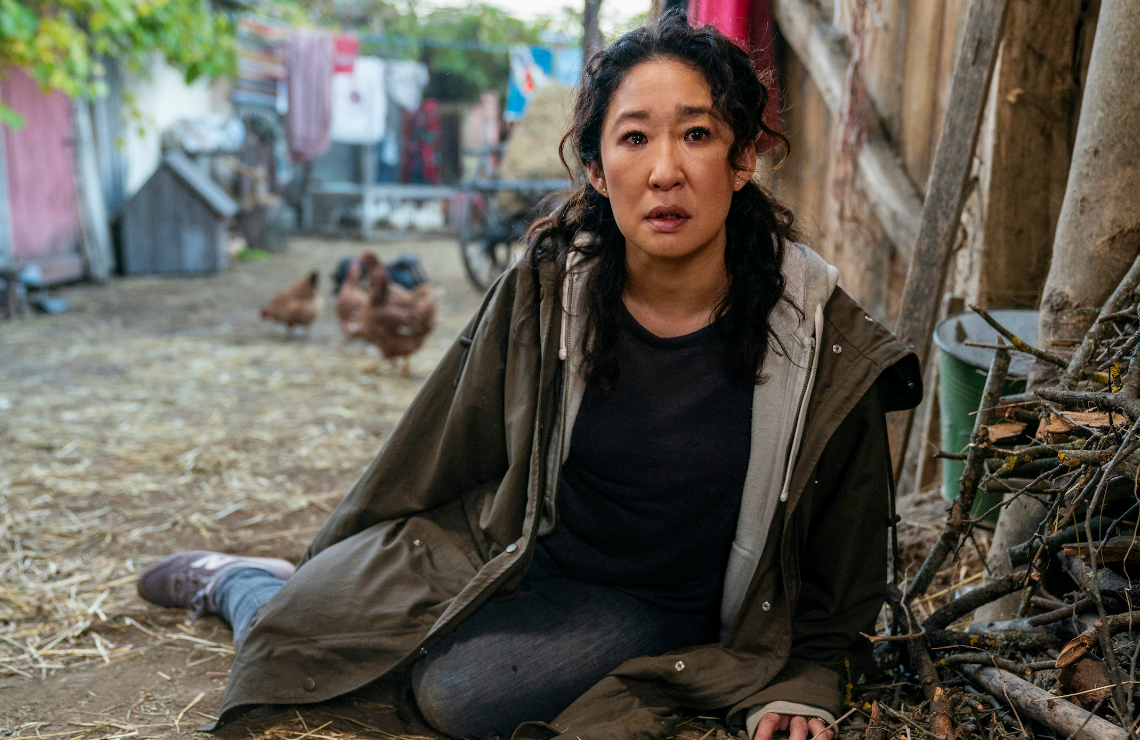
From the moment poor Kenny Stowton (Sean Delaney) was thrown to his death from an office rooftop, Killing Eve has been particularly ruthless. Characters have either been killed or irrevocably injured on a consistent basis, and the effect has been palpable. Killing Eve’s action sequences have been imbued with a renewed sense of danger, so that even when the show has saved characters like Niko (Owen McDonnell) or Dasha (Harriet Walter) from the brink of death, the violence has felt impactful in much the same way that it did in the show’s first year. For a series that's always been revered for its entertainment value, the importance of that added tension and unpredictability cannot be overstated.
High: Villanelle’s Trip Home

One of the great joys this season has been the show's renewed focus on producing great standalone stories. Nowhere was that focus more apparent than in the the fifth episode, "Are You From Pinner?," which saw Jodie Comer’s Villanelle returning to Russia to reunite with her biological family. Written by showrunner Suzanne Heathcote, the episode skillfully revealed key details about Villanelle’s origins, without over-explaining her behavior and actions.
Centered around a brilliant performance by Jodie Comer, "Are You From Pinner?" was wrought with an uncomfortable tension from beginning to end, as viewers watched Villanelle struggle to reconcile the family she found herself surrounded by in the present with the one she remembered from her childhood. The episode’s final 10 minutes are among the most involving and unsettling that Killing Eve has ever produced, culminating in one long static shot of Comer’s face that may very well secure her another Emmy win.
Low: Bitter Pill

Killing Eve has introduced a good number pf characters this season, and while some have been memorable additions to the show’s already stacked ensemble (more on that below), others have been lackluster. Unfortunately, the Bitter Pill team, which includes Jamie (Danny Sapani) and Bear (Turlough Convery), has been one of this season’s biggest disappointments.
Bitter Pill has seemed to exist solely as a way for Eve to investigate Kenny’s death and Niko’s attack, without having to return to MI6. But the show hasn’t invested enough time in any of the characters (whatever happened to Kenny’s grieving girlfriend?) to make the team a suitable replacement for Eve’s past MI6 coworkers. The series has yet to truly justify their existence, which just makes us wish Eve had gone back to MI6. At least that way, we’d have gotten more scenes between Eve and Carolyn.
High: It’s Nice to Meet You, Dasha
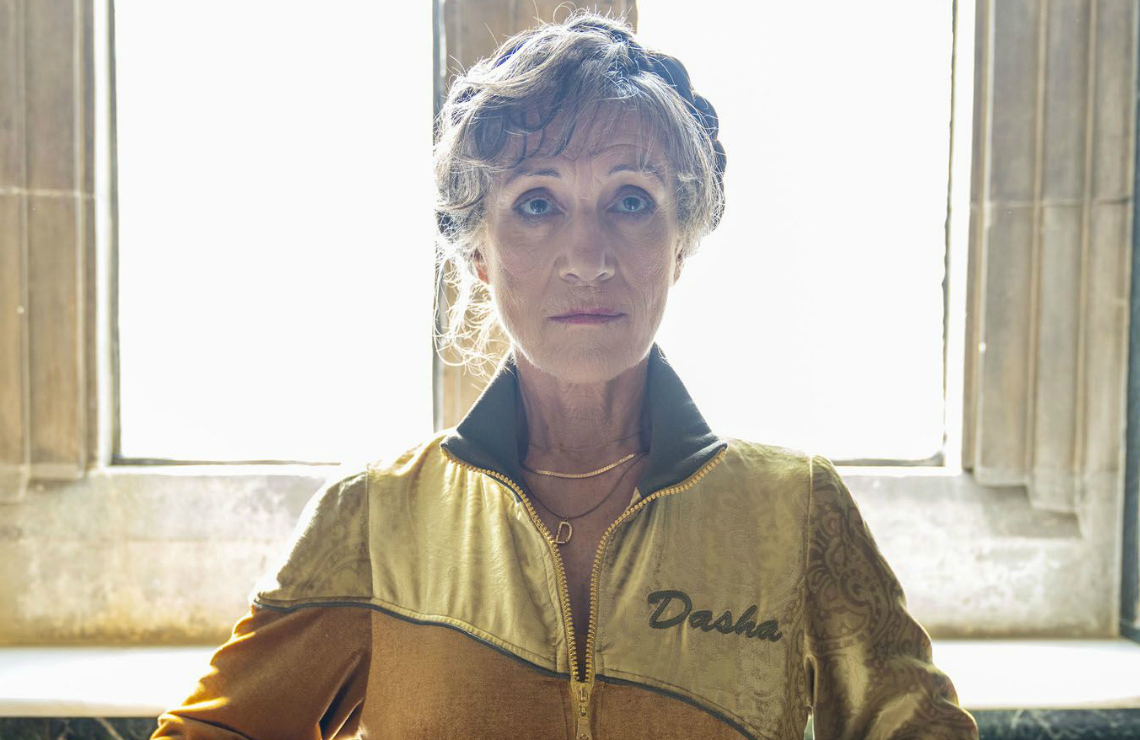
Killing Eve may have missed the mark with the Bitter Pill characters, but the inclusion of Dasha this season almost makes up for that. As the woman who trained Villanelle in her assassin ways, Dasha shares many of the same characteristics as the series’ best characters. She’s proud, quirky, just a little over-the-top, and most importantly, dangerously well-suited for her field.
In other words, Dasha is the kind of character who can be teach young girls gymnastics in one scene and shove a pitchfork through a man’s throat in another, and do so without feeling inconsistent. With Villanelle spending most of the season separated from Eve, Comer has needed another scene partner to really spar with on screen, and thanks to Harriet Walter’s brilliant performance, Dasha has more than stepped up to the plate. She stands tall as one of Killing Eve’s best inventions to date, and each of her scenes has felt like time well spent.
Low: Why is Geraldine Here?
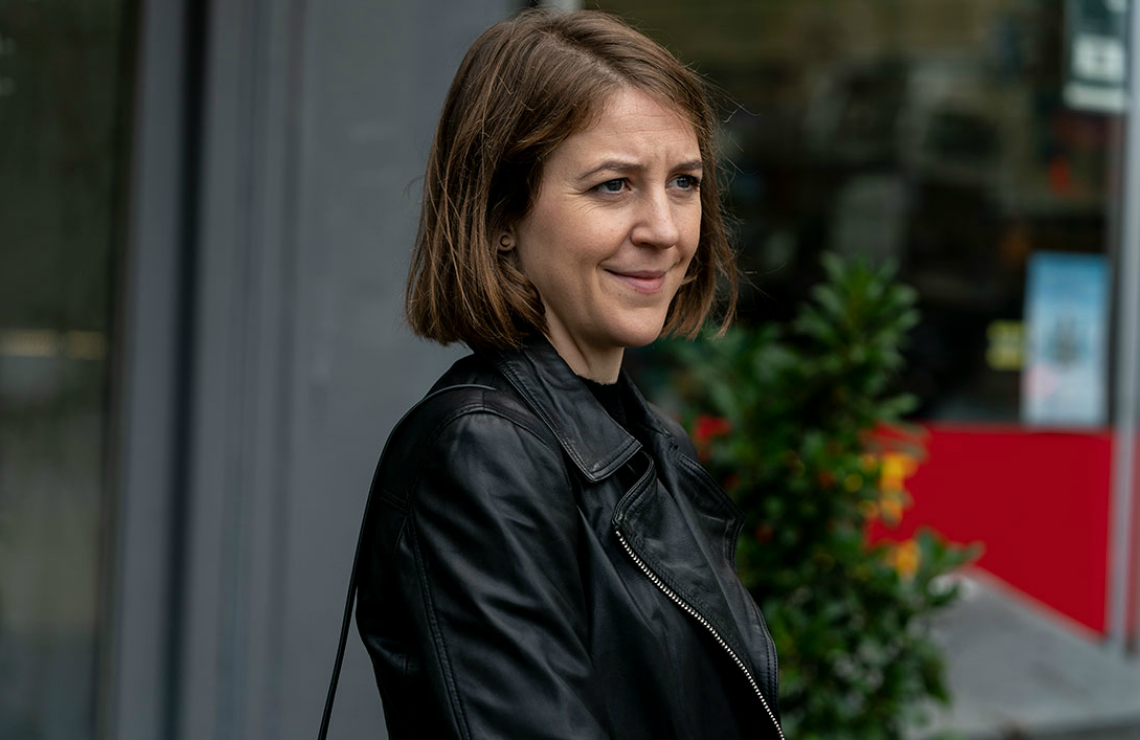
While Dasha has been a worthwhile and exciting new presence this season, the same cannot be said for Carolyn’s estranged daughter Geraldine (Gemma Whelan), who served little to no purpose in the season’s overall story. In general, her scenes have consisted of her either complaining about her mother’s emotional coldness or demanding the kind of attention from Carolyn that she’s been deprived of throughout her life.
The character has remained frustratingly one-note, which means that even if the finale reveals — as some have speculated — that she’s been playing a larger role in the story than previously thought, it’s hard to imagine it landing with much of an impact. The character just isn't complex enough for the audience to form any kind of attachment.
High: Just Give Fiona Shaw Her Emmy Already
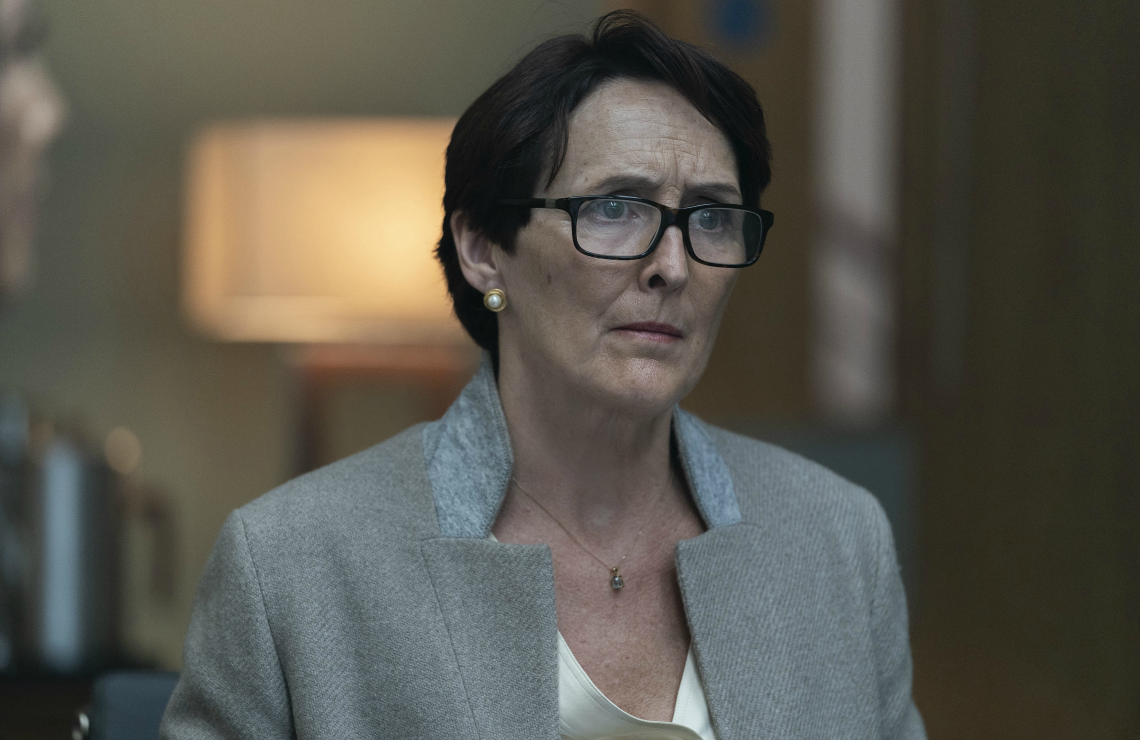
Killing Eve has thrown a lot at Carolyn Martens (Fiona Shaw), including the shocking murder of her son, the re-emergence of her daughter, the revelation that one of her closest MI6 coworkers is working with her enemies, and the recent murder of her assistant. To say that the show has asked a lot from Fiona Shaw would be an understatement. The good news is that she has risen to the challenge.
Shaw has portrayed Carolyn’s emotional journey with raw honesty and striking subtlety, as Carolyn’s trademark steeliness has waned and hardened with each new blow. Shaw has always been great in the role, but the third season saw her best work to date. She’s been nominated once before for Killing Eve, but unlike Sandra Oh and Jodie Comer, she has yet to bring home an Emmy. It’s hard to imagine her walking away without a win this time.
Low: Eve’s Reduced Role
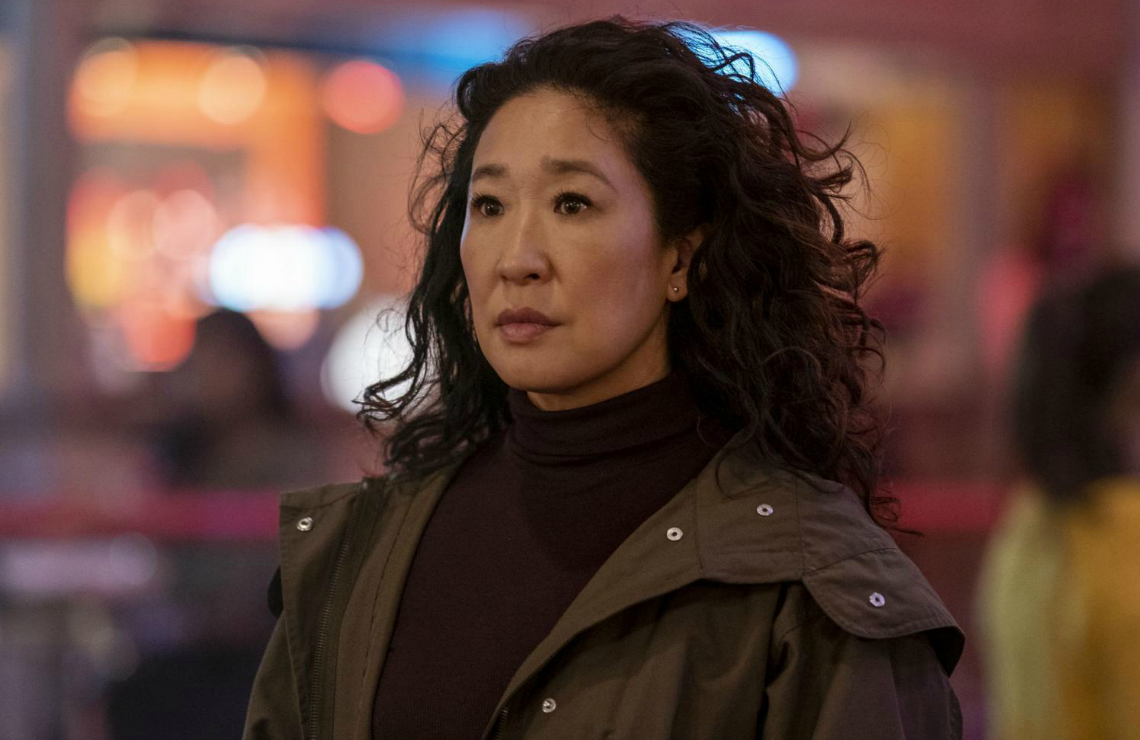
By focusing less directly on Eve and Villanelle’s relationship, Killing Eve has been able to devote more time and attention to its supporting characters. For the most part, that decision has worked out well, as the series has begun to feel more like an ensemble vehicle, and actors like Fiona Shaw and Kim Bodnia have tackled some of their meatiest material to date. Unfortunately, the downside has been Sandra Oh’s seemingly shrinking presence.
In recent episodes, Eve has felt less like one of the two leading forces of Killing Eve. Oh has remained as compelling as ever, playing the character’s continued journey into moral darkness with obvious skill, but for a show called Killing Eve, the plot has large pushed Eve to the sidelines, and that's a shame.
High: Villanelle’s Whole Arc
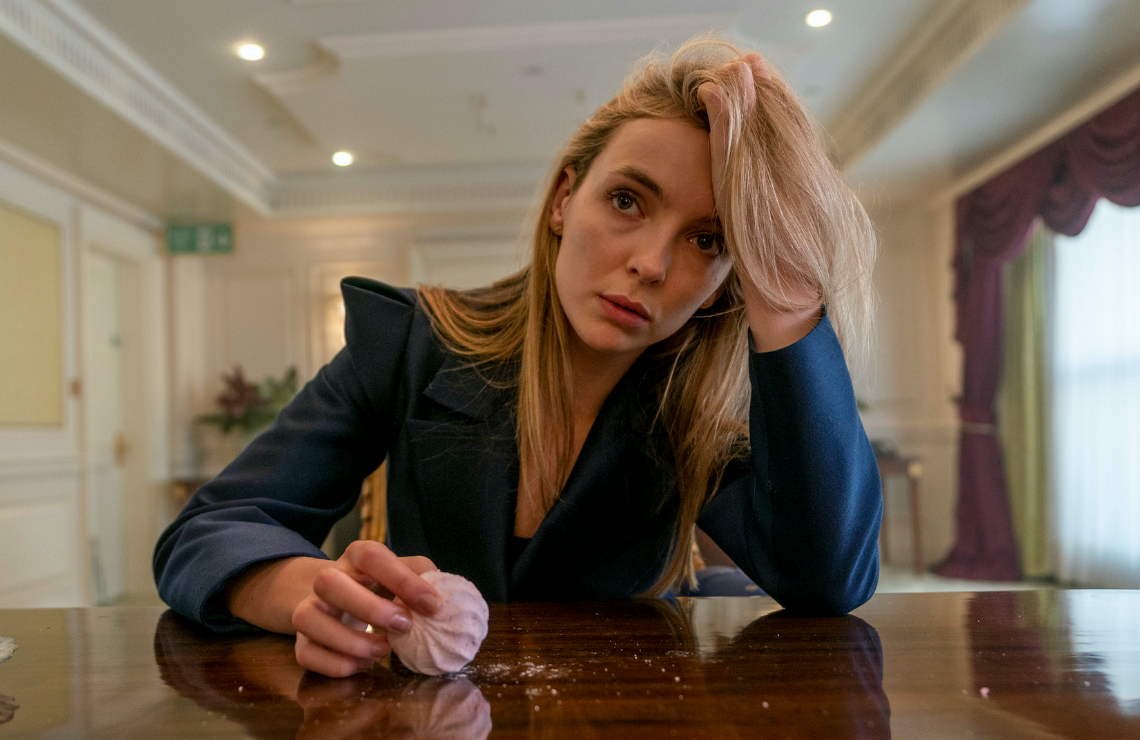
Similar to Carolyn's treatment, Killing Eve has led the character of Villanelle into some surprising new emotional territory. Over the course of the season, viewers have seen her grow increasingly frustrated by the lack of real control she feels she has over her own life. That frustration has manifested itself in fascinating ways, starting with an aborted marriage in the season premiere, and followed by her demand that she be promoted to "Keeper" status by The Twelve. But Villanelle’s biggest turning point came in the previously-mentioned fifth episode, when she announced with tears in her eyes that she had to kill her mother — not only because she thought her mother deserved it, but because it was the only solution Villanelle could come up with in the moment. A heinous act for even Villanelle to commit, watching the character succumb to the emotional fallout of her mother’s murder has been stunning, as she's become more and more aware of just how much damage her kills are having on her soul.
The fact that Killing Eve has managed to believably sell her emotional journey is a testament to how well the show has dug into the character this year. The same can be said for Killing Eve’s third season as a whole, which despite a few notable flaws, has been a far more rewarding follow-up to the show’s near-perfect first season than its uneven second.
The season finale of Killing Eve airs Sunday, May 31st at 9:00 PM ET on BBC America and AMC.
People are talking about Killing Eve in our forums. Join the conversation.
Alex Welch has written about television and film for TV by the Numbers, IGN, The Berrics, Paste Magazine, Screen Rant and GeekNation. Follow him on Twitter @alexrwelch.
TOPICS: Killing Eve, AMC, BBC America, Fiona Shaw, Gemma Whelan, Harriet Walter, Jodie Comer, Kim Bodnia, Phoebe Waller-Bridge, Sandra Oh